Aerogel Architecture Award 2023
Innovative aerogel applications in construction
On 2 June, the Aerogel Architecture Award was presented for the third time on the Empa campus in Dübendorf. A total of six projects were awarded in the categories Realized Projects and Student Projects. All of them show innovative applications of aerogel in construction projects – be it in new buildings or in historical structures. The winning student project comes from the Czech Republic, the winning realized project from Zurich.
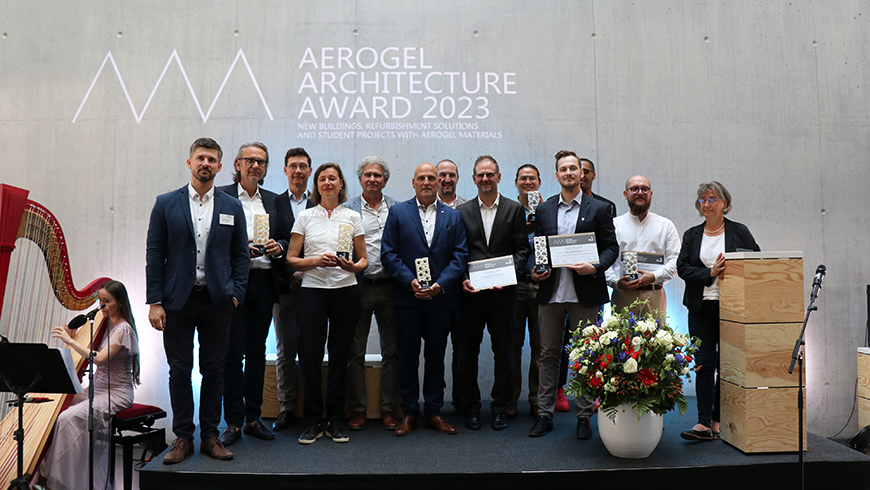
For this year's Aerogel Architecture Award, the jury was looking for projects that show the use of the innovative insulation material aerogel in renovations, in the preservation of historic buildings, and in architecture and construction in general. From a total of 24 submissions for the two categories Student Projects and Realized Projects, the five-member expert jury nominated three projects each, which were invited to the award ceremony at NEST, the research and innovation building of Empa and Eawag.
Designed for disassembly
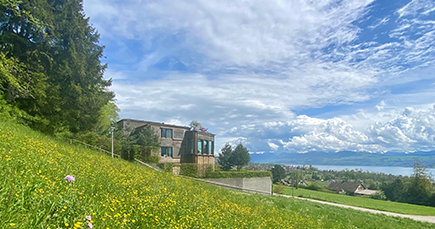
Seven projects from four countries were submitted in the Realized Projects category. The winner is a project from Switzerland: a newly built single-family house in Meilen at Lake Zurich, which was realized by the architectural office Dietrich Schwarz Architekten. Aerogel was used in the building envelope in combination with highly insulating glazing. With that approach, an extremely slim, well-insulated wall structure was achieved. The special feature: a new clamping method that was developed for fastening the aerogel panels, which helped to dispense with gluing and screwing. This facilitates dismantling and at the same time prevents unwanted air circulation in the walls. "What we particularly liked was the simplified construction method and the successful integration of modern materials, giving this beautiful building a very good energy balance," summarized jury member Matthias Koebel, former head of Empa's Building Energy Materials and Components lab and now CEO of the Empa spin-off Siloxene AG.
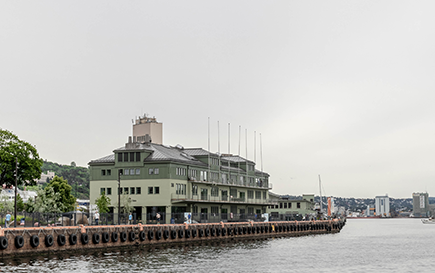
In second place is a renovation project from Hamburg. The goal was to refurbish historic row houses dating back to 1904 to make them more energy-efficient. The team from Störmer Murphy and Partners decided to upgrade the exterior walls with aerogel insulation plaster. This made it possible to meet the requirements of the preservation order and achieve the specified minimum thermal insulation while at the same time preserving the historic appearance of the building.
On the third place of the podium stands the headquarters of the Port of Oslo. The team of several architects from Hille Melbye arkitekter, Kristin Jarmund arkitekter, IARK, Bollinger+Grohmann and zero emission studio had the task of upgrading the historic building Skur 38 in such a way as to preserve its original appearance. To meet today's standards, aerogel insulation plaster was used in the interior walls of this project as well. At the same time, reusable components were recorded in a database so that they can be reused in future projects after dismantling.
Holistic concept
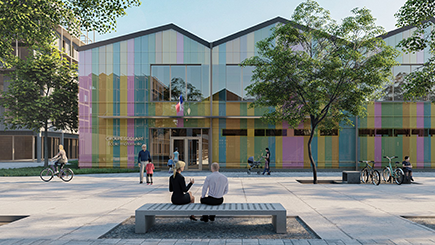
A total of 17 submissions from seven countries were submitted in the student project category. The winner comes from the Czech Technical University in Prague. The two students Jiří Petrželka and Kristýna Klůsová developed a concept for the construction of an educational center in Saint-Denis, France. It will include an elementary school, a kindergarten, recreational rooms and other flexible spaces. The buildings are to be constructed as sustainably as possible. The goal is to keep CO2 emissions as low as possible and use local energy, in the form of solar power. Additionally, the project team wants to ensure that the buildings are optimally insulated by using aerogel panels in some special places, such as in the boxes for the blinds and in the flat roof. At the same time, the wall construction will be as thin as possible creating more space inside. "We were very impressed by this comprehensive concept, which has been planned down to the smallest detail not only from an architectural, but also from an energy point of view," explains jury member Beat Kämpfen, co-managing director of the architectural firm kämpfen zinke+partner.
The second place went to the students Michael Chang and Adrian Corbey from the Harvard Graduate School of Design. They have developed a concept to refurbish the iconic roof of the university's Gund Hall, which regularly suffers water leaks. To counteract this, a textile roof with incorporated aerogel granules will be used to optimize the roof in terms of insulation and waterproofing. At the same time, the material is translucent and allows constant natural light into the hall.
In third place on the podium is a student project from ETH Zurich. Matthias Leschok, Valeria Piccioni and Ina Cheibas, together with their professors, have developed an approach for a novel façade system. Using a special 3D printing process, hollow strands are to be produced into which aerogel is then filled. The technology makes it possible to create complex shapes, allowing maximum design freedom for the façade. At the same time, the aerogel can be recovered afterwards so that it can be reused in future projects.
In addition to the awards, the top 3 student projects also received prize money of CHF 500, CHF 1000 and CHF 1500.
The Aerogel Architecture Award
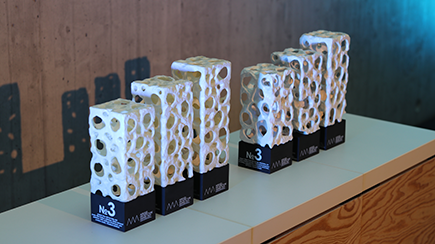
The Aerogel Architecture Award was initiated by Empa in 2020. This year, it was facilitated by industry partners Solarwall & Advanced Glazing, Fixit, Agitec, IBIH and Hasit. For the 2023 competition, 17 student projects and seven realized projects were submitted from different countries. An expert jury consisting of Matthias Koebel (Switzerland), Ralf Kilian (Germany), Beat Kämpfen (Switzerland), Volker Herzog (Germany) and Manfred Wehdorn (Austria) evaluated the projects in terms of heritage value, energy efficiency and originality of the chosen solution.
Further information on all submitted projects can be found on this website.
Dr. Michal Ganobjak
Building Energy Materials and Components
Phone: +41 58 765 60 32
Dr. Samuel Brunner
Building Energy Materials and Components
Phone: +41 58 765 47 68
Recording of the ceremony: https://www.youtube.com/watch?v=T-912CNiTak
Last year's award ceremony: /web/aaa/overview
Press release on the Aerogel Architecture Award 2022: /web/s604/aerogel-architecture-award-2022
-
Share
